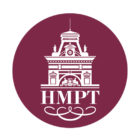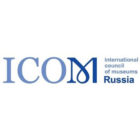Kazan, Republic of Tatarstan, 8–12 September 2020
Collecting Diversity: Divergence as Dialogue
CALL FOR PAPERS
COMCOL is the International Committee for Collecting of the International Council of Museums (ICOM), which aims to deepen discussions and share knowledge on the practice, theory and ethics of collecting and collections development. This year COMCOL joins forces with ICOM Russia and the National Museum of the Tatarstan Republic for their annual conference.
As societies today become more and more diverse, forces of rejection, fear and polarization seem to grow and become stronger. Societies need to fight harder in order to retain their unity, their humanity and their prospects. The changing dynamics of politics, economics and demographics that the new conditions around the world bring forward, make re-definition of values, a re-orientation of society towards more inclusive and pluralistic goals, an effort to build the future on a stronger basis of unity instead of division become increasingly important. Museums have a crucial role to play in this current situation.
Museums have the capacity to reformulate social, cultural and environmental values and can function as mirrors or sounding boards for their societies. They have the possibility to echo the problems of the contexts in which they are immersed and to focus on fostering positive values for a better social co-existence.
Museums are the keepers of bigger and smaller national “treasures”. For some time already the role and importance of these “treasures” are debated. Issues like representation, inclusivity and provenance have become prominent. How can institutions today collect, present, interpret and share the variety of meanings that these objects bear and how can they keep collecting similar “treasures” for the future?
Do museums do enough to open their collections to everyone? Do they answer to their societies’ needs and demands? How can social, economic and political circumstances influence museums` strategies and processes regarding the formation of collections? How significant the cultural attitudes and background of the museum personnel are?
How can museums talk about the contemporary and how can they work with culture today to create the heritage of tomorrow? How can museums navigate through the politics of collecting in a way that will represent and respect the multiplicity of today? What kind of issues do museums face during this process? These are some of the questions that reflect the range of challenges that contemporary museums encounter daily. No simple or universal answers, however, are available.
The aim of this conference is to provide a forum for these and similar questions to be addressed, for best practices to be shared, for debates around possible answers and solutions.
We invite papers from researchers, museum professionals and students that address issues of collection development, including, but not limited to, the following topics:
Democratic collecting: collecting from an inclusive perspective
Museums have the responsibility to collect and show collections in an inclusive way. How is this done? How can museums collect and preserve stories and objects that showcase our superdiverse societies? How do museums work in an inclusive way with contemporary collecting and collections?
The ethics of collecting
Museums have a responsibility to reconsider the ethical dimensions of their collecting methods and the ethics of the collections they already hold. Collections often include contested objects and raise questions around colonialism, representation and repatriation, sacral conservation, categorization and multivocality. How can museums deal with these matters? Which role can (source) communities play in these cases?
Collecting as dialogue
How can collaborations between museums and communities create bridges for greater understanding and empathy? Can collaborations alter the context of the museums’ older collections? Can collaborations lead to new ways of collecting and interpreting old collections? Can collaborations lead to repatriation or de-accessioning of collections? Which roles can individuals and communities play in their museum representations? How do museums collect and preserve contested histories of the past and the present, to make future generations understand current contexts and reasons for collecting?
Submitting abstracts:
Abstracts (between 250 and 300 words) should be sent to: comcol.secretary@gmail.com
by 15 March 2020. Approval of proposals will be announced by 24 April 2020.
The following information should be included with the abstract:
- Title of submitted proposal (please indicate if it is a paper, workshop or panel contribution)
- Name(s) of Authors
- Affiliation(s), e-mail address(es), and full address(es)
- ICOM number
- COMCOL member y/n
- Technical requirements for the presentations
The conference and abstract language is English.
We warmly welcome proposals that go beyond traditional paper presentations and encompass also panels, pecha kucha sessions and workshop formats.
Conference publication:
A conference publication is planned. Please inform us if you are not willing to be a part of the publication. Otherwise a full paper for the publication should be sent to: comcol.secretary@gmail.com by 01 July 2020.


